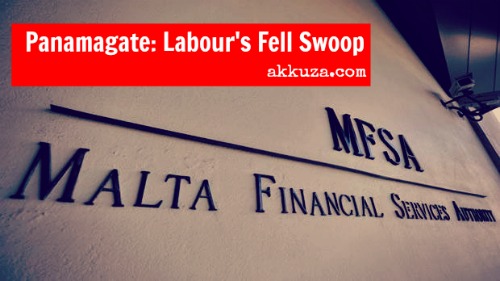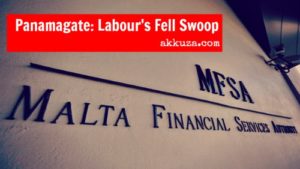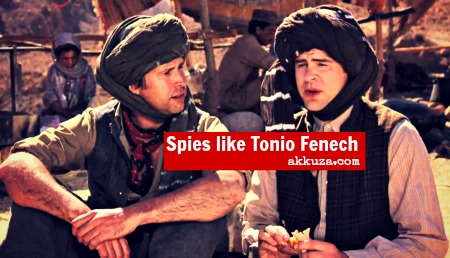“We need a contest”. Prime Minister Gonzi apparently believes that a bit of competition would be healthy for his party. In a way you cannot blame him. The opposition is anything but good competition in that respect given how it seems to be banking solely on the concept of “victory by default”. Joseph Muscat’s schizophrenic approach (the country needs an election yesterday but we won’t tell you our plans because election time is not here yet) does little to force the debate down to practical terms and Gonzi’s team are stuck in an eternal time loop of the clichéd criticism (same faces).
We want a fight from our rightful parties
I’d love to have the parties trade blows on factual positions. Energy for example – not just highlighting what is bad and what has been done wrong but rather what will be done in the future. The same goes for a myriad other topics: water alone takes a prime place in future planning priorities – from floodings to wastage to the cost of providing water services efficiently. Health? Beyond the hospitals is there a concrete position on health care and its weight on the national budget? How do the behemoths fare on that. The nationalist party has been busy waving new “rights” in our faces – and depending on whether you believe new government appointee Antonio Ghio or IT Law Department guru Cannataci it is not clear whether we are getting this business of rights right.
Then there were the recent bandwagons such as censorship. Apparently it is dead and if you believe people like Owen Bonnici it’s thanks to the divorce debate that censorship was finally tackled. You couldn’t make it up if you wanted to (unless you were Robert Musumeci on a tautological aphorism generating trip ). The big issues lie ahead unsafely entrenched in a minefield of fence-sitters and conservative loonies. IVF, abortion (yep the big A), gay marriage, adoption by same-sex couples – don’t be amazed if we get to an election without clear positions on all these points in a manifesto (except for AD of course but they don’t count).
We want positions, we want battles over positions. Instead we get billboards. DWLLWGAF?
Dalligate and its leftovers
Did you notice how John Dalli’s moment in the international limelight petered away quietly? Oh of course, you will get your columnist in some agenda-driven papers trying to highlight the strength of the tobacco lobby or the weaknesses of some EU institution or another but in general terms Dalligate (now termed Snusgate by some) is unfolding into the two-dimensional issue that we had predicted early on. Why?
Well. On a European level Dalli finds himself with little to argue with. All his hopes seem to be pinned on a report that remains hidden from public eyes. On the other hand his random interventions before an ogling public at the height of the news items’ four days of fame have produced such gems as his justification of the use of canvassers as intermediaries for Commissioner business. That in itself negated the need of the results of the OLAF report becoming public. Put simply Dalli had confirmed with his own words that his modus operandi made him anything but unimpeachable. Ceasar’s wife was not above suspicion. We can leave the legal bickering on whether a sacking it was to his lawyers but on a political level Dalli’s way of working – though not illegal per se – was sufficient to raise enough eyebrows and get him kicked out of the Commission.
Does it really matter whether Barroso did it out of spite? Not really. What matters here is that Dalli (with Mr Zammit) left a door open wide enough to create the pretext for his elimination from the Commission. It will be up to his successors (and future Council meetings) to clear this messy state of affairs and to ensure that such situations are more clearly regulated. On a European level the pie is all over the place. A dark cloud remains on the modus operandi of the tobacco lobby, on the workings of OLAF itself, on the potential conflict of interest by some members of the Supervisory board and on the Commission (including its relations with member states). There is also no denying that Malta’s reaction as a state to the Dalli sacking would have been different had it been any other politician than the one who had burnt all his bridges with his own capital. If journalists could come up with probing questions about the iter of the sacking process then I am sure in that in the rear corridors of power a properly placed question regarding one’s own nominee would have been due.
After Dalli
After Dalli we get Borg. Another one. Was he a safe nomination? Well we can never be too sure. Let us start with the party/government that nominated him. The reasons behind the nomination are very evidently based on a mixture of self-preservation and priorities that put Maltese issues firmly above anything European. Nothing that has not happened elsewhere in Europe. Still they must be noted. I’d insist that the most ideal candidate for that position had been “burnt” thanks to the inability of the PN to control its dissenters. That too must be noted. Within Richard Cachia Caruana’s CV there will forever remain the blemish of a parliamentary vote that claims to de facto have found him guilty of having worked against Malta’s interests. No matter that the discussion and vote did anything but prove that point.
Borg goes to Brussels with a heavy baggage that no amount of excess fines can justify. His position within the ideological framework of the nationalist party has clearly been one of the hard-line christian democrat that stops just short of wearing a cassock. Although I would dare say that his views do not necessarily reflect those of the majority of persons of a nationalist persuasion (given the panoply of values that have recently been swallowed like a bitter pill for vote purposes) he still managed to throw them around forcibly like some latter day Savonarola. From the treatment of immigrants to positions on IVF, divorce and gay marriages we cannot really say that Borg is exporting a bit of liberal Malta to the Commission.
In any other time this would be neither here nor there – and this coming from a blog that still sees Buttiglione’s rejection as substantially unfair and legally incorrect. This is not any other time though. This is Malta reeling from pie on its face that results from its last nominee becoming the first Commissioner to resign individually. Even without the greens and socialists giving Borg a hard time the chances of some more pie on the face are quite high. Having said that there is also the possibility that Borg softens his hard-line approach on a European level and keeps his personal views to himself. The Commissioner role after all is about a Commission agenda and not a personal one.
The Contest
And after Borg? Well the John Dalli news must have been a godsend to PM Gonzi. As the nationalist party announces a protracted campaign for the Deputy Leader contest (practically one month including two weeks for nominations) you can see how much time can be wasted on what is essentially a pointless race. Yes, you read right. Pointless.As Tonio Fenech and Mario De Marco giggle away with reporters – “I’ll be your campaign manager” joked De Marco, “Madonna, what’s the rush” replied Fenech, prompting Mario to check if there was someone else in the room – you sense that this is yet another transparent time killing manoeuvre. Yes, this is the moment when the striker for the team that is winning in extra time notices he is about to be subbed so he rushes to the farthest point on the pitch before developing a sudden bout of walking-itis that would make for First Secretary at the Ministry of Funny Walks.
Suddenly the post of Deputy Leader has become the most important position in the universe and even the resignation of iOS6 responsible Scott Forstall pales in comparison (it doesn’t really, Apple’s turnover is many many many times larger than Malta’s economic worth). Previously this Deputy Leader business might have been considered an anointment for the future leader of the PN. Previously though there were much less strands and cliques within the party. Forget the thin veneer of a united face that is about as convincing as a Halloween mask designed by a three year old. This Deputy will be a deputy in any case. Whoever is elected will still have to face a new battle should the place for leader become vacant. I doubt that at that moment there will be any “power of the incumbent deputy” issues to deal with because chances are that “that moment” will be a time of renewal for the whole party.
So as I said. Gonzi is not lying when he says “We need a contest”. Don’t get all confused by the “we need a contest” bit though. The only benefit of this contest is that it is a welcome distraction from the “election today, election tomorrow” uncertainty and, if the rumours that Franco Debono is interested in contesting are true then there’s one hell of a distracted person that can be kept busy at least till the end of November when he will get his first reality check with the PN Councillor votes. (Last time round there were 818 of them voting).
Sandy
Hurricanes like Sandy really give us a sense of perspective. Battered by winds and water New York (and, lest we forget much of the Caribbean and East Coast) has suffered heavy damage and loss of human life. Reactions by Presidential candidates Obama and Romney just a week away from the elections should serve as a lesson to many politicians the world over. When in doubt do the most decent thing possible.
J’accuse will be silent over this All Hallow’s Eve, All Saints and Dia de los muertos. It’s wedding anniversary weekend and we’ll be heading to the Languedoc region hoping for the last of the sunny warmth.



